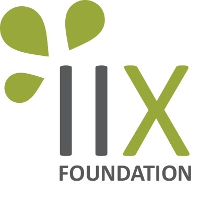
The aim of the research is to understand the “buy” side of the market for impact investing in Asia and the Pacific. Specifically, this project places emphasis on understanding the scale and scope of capital pools available for impact investment in sustainable social enterprises (SEs) 1 in Asia and the Pacific in the coming years, the interest of investors in utilizing a “social stock exchange” as part of their impact investment strategy in the region and the design features that such a social stock exchange must incorporate in order to attract these impact investors. The research seeks to understand, “What engages investors in impact investment?”; What is the current and projected level of interest?”; “What is the need for and appeal of a social stock exchange?”; and “What are the operational requirements for each investor category to participate on a social stock exchange?” – all in the context of Asia and the Pacific region. This report provides insights to investors keen to invest in the region, financial intermediaries that advise SEs on capital raising, and developers of platforms seeking to connect SEs in the region with impact investors. Impact Investment Exchange Asia (IIX), an SE based in Singapore, is applying the final outputs of this research as it finalizes the operating features of Asia’s first social stock exchange, which it is creating. The outputs of the research will also aid policy makers and institutional actors to better understand and foster an environment for sustainable development through impact investing. Executive Summary – Background
Impact investing has emerged as an alternative asset class that channels large-scale private capital into addressing the world’s most pressing social and environmental challenges. J.P. Morgan estimates that the impact investment market has the potential to absorb between US$400 billion and US$1 trillion over the next decade, even when only including five sectors (housing, rural water delivery, maternal health, primary education and financial services) in the analysis.
While foundations, development finance institutions and ultra-high net worth individuals have been the traditional pioneers in impact investing, there is a large supply of untapped impact investment capital among individuals and institutions that can help to meet this investment demand over the coming years. Our hypothesis is that the development of a social stock exchange serving SEs in Asia and the Pacific can help to unlock this supply of impact investment capital. The capital markets can play a critical role in sustainable, economic development in Asia. 753.5 million people in Asia and the Pacific region live on less than US$1.25 per day, and approximately 63% of the world’s poor population (defined as living on less than US$2 per day) live in Asia.
Possessing huge growth potential in Asia, sustainable SEs are uniquely positioned to address a wide range of economic, environmental, health, and social challenges. Though a large number of innovative SEs address a myriad of social and environmental challenges throughout Asia, a disconnect prevails between the supply of impact investment capital from impact investors and the demand for growth capital by SEs. This disconnect is presently curbing SE growth and inhibiting the inherent potential of leveraging market-based capital for social impact. The disconnect arises from the lack of information about the availability of impact investment opportunities in the region as wellas the difficulty and high due diligence costs incurred in accessing such opportunities; the high perceived risk associated with impact investments, especially in emerging markets; and the potential illiquidity of investments in SEs and limited range of exit options for investors. This disconnect also arises from the lack of standardized impact measurement and reporting as well as from a mismatch, in many instances, between investors’ and SEs’ expectations for financial returns on impact investments.
A regional social stock exchange may be able to reduce this disconnect of supply and demand by addressing these issues. In particular, a regional social stock exchange could improve access to and reduce due diligence costs for investment opportunities in SEs; offer a variety of investment products that may mitigate risks; improve liquidity in impact investments; improve transparency by establishing standardized reporting for social and environmental impact; and engaging market intermediaries and encouraging stakeholder participation.
IIX and its not-for-profit affiliate, Impact Investment Shujog (Shujog), are playing a critical role in the development of Asia’s first social stock exchange. Recognizing that there is a need to build up the capacity of SEs in Asia so that they can effectively absorb growth capital, Shujog focuses on capacity-building, advocacy, research and education related to the SE sector in Asia and the Pacific. In order to facilitate private capital raising by SEs in Asia and the Pacific, IIX launched Impact Partners in March 2011, serving as Asia’s first private placement platform connecting SEs and impact investors.
File Name: impact-investors-in-asia-characteristics-and
